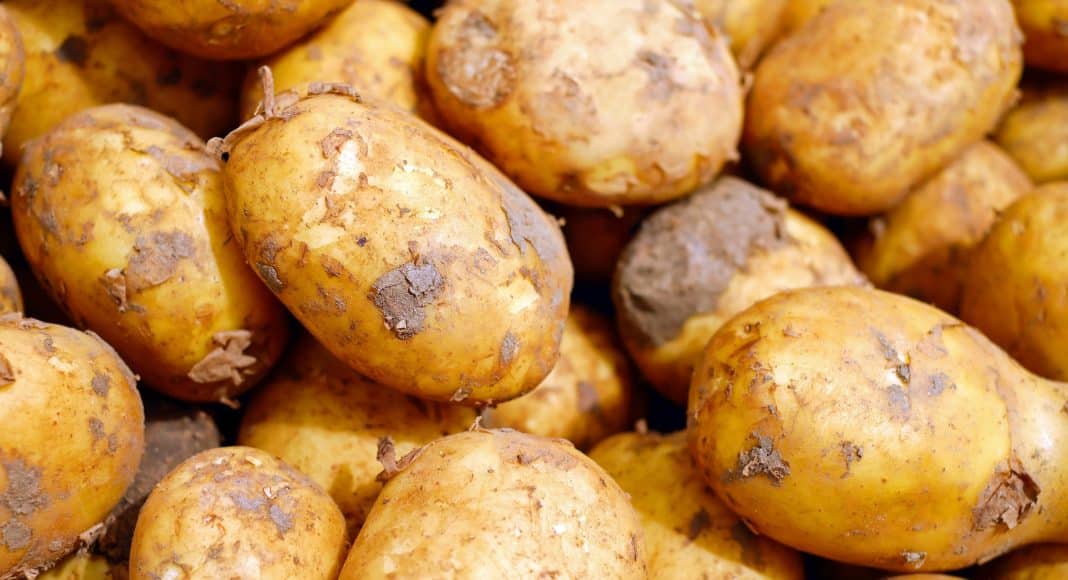Researchers have discovered a game changer for the potato industry.
A recent study released in a prominent international society journal by the American Society of Plant Biologists reveals that a minor genetic component is responsible for a significant production issue in potatoes, according to a press release.
“Our manuscript reveals the mystery of “cold-induced sweetening” (CIS), the most troublesome and expensive problem for the potato processing industry,” explained Jiming Jiang, Corresponding Author of “Molecular dissection of an intronic enhancer governing cold-induced expression of the vacuolar invertase gene in potato” published February 20 in The Plant Cell. “Interestingly, it is controlled by a 200-bp sequence hidden in an intron of the potato vacuolar invertase gene.”
Potatoes, a staple food crop globally, undergo extended storage periods post-harvest to meet year-round demand. Cold storage is commonly employed by farmers to combat diseases, sprouting, and softening.
However, cold exposure triggers another physiological reaction in potatoes. Low temperatures prompt the conversion of starch into sugar within tubers. Upon frying after storage, the accumulated sugars lead to the production of acrylamide and turn an undesirable dark brown-black color.
In the study, Jiang and colleagues identified various DNA motifs within a 200-bp sequence that bind to transcription factors associated with plant cold stress response. By mutating these specific sequences, the researchers observed a significant reduction in the potatoes’ cold stress reaction.
This discovery solves a long-standing agricultural problem and sets the groundwork for easily improving it with gene editing.
“I was hired as a potato breeder by the Department of Horticulture, University of Wisconsin-Madison in 1995,” added Jiang. “improving the CIS trait, based on traditional breeding as well as biotech approach, was one of the top goals for the breeding program.”











